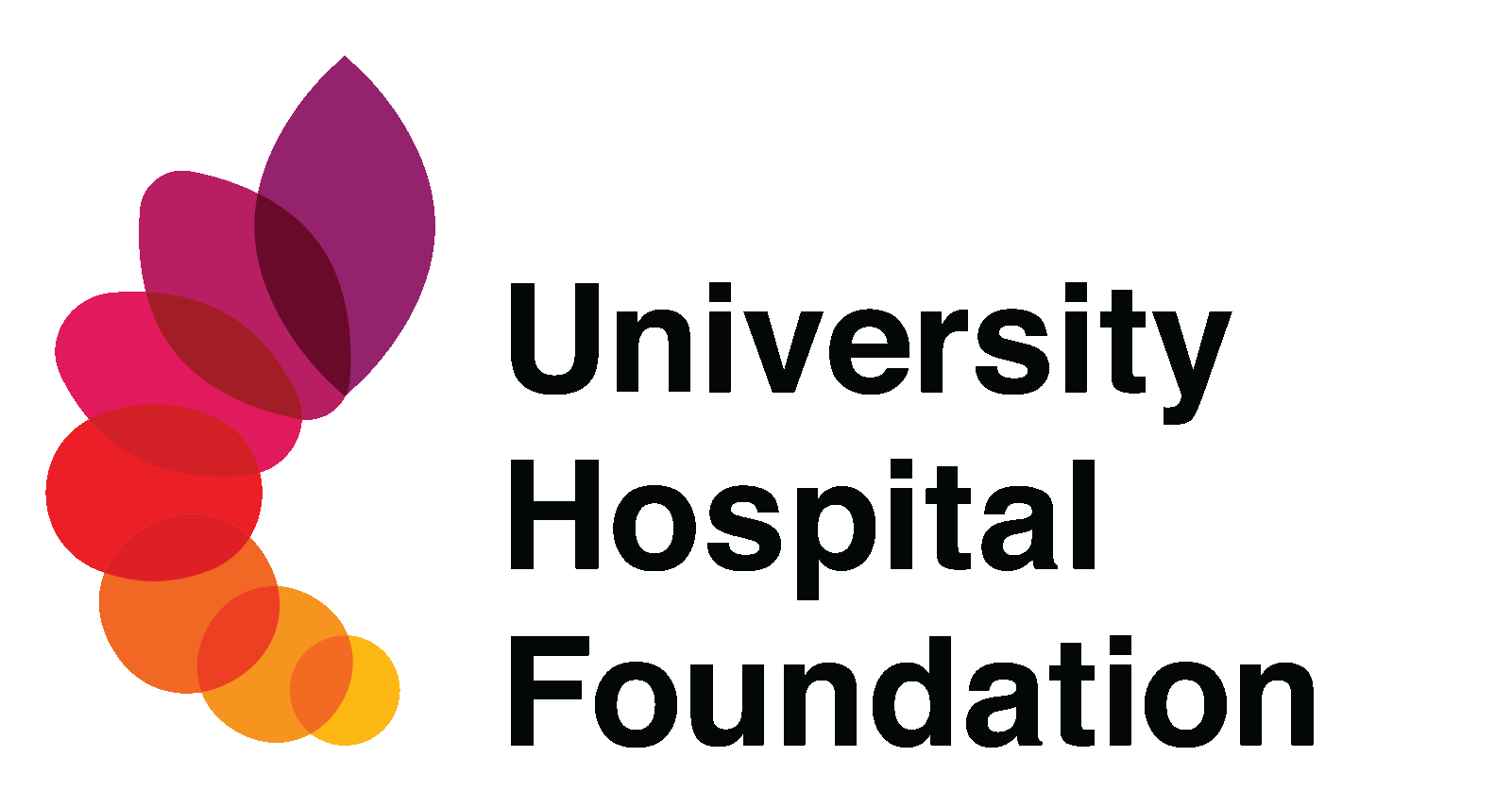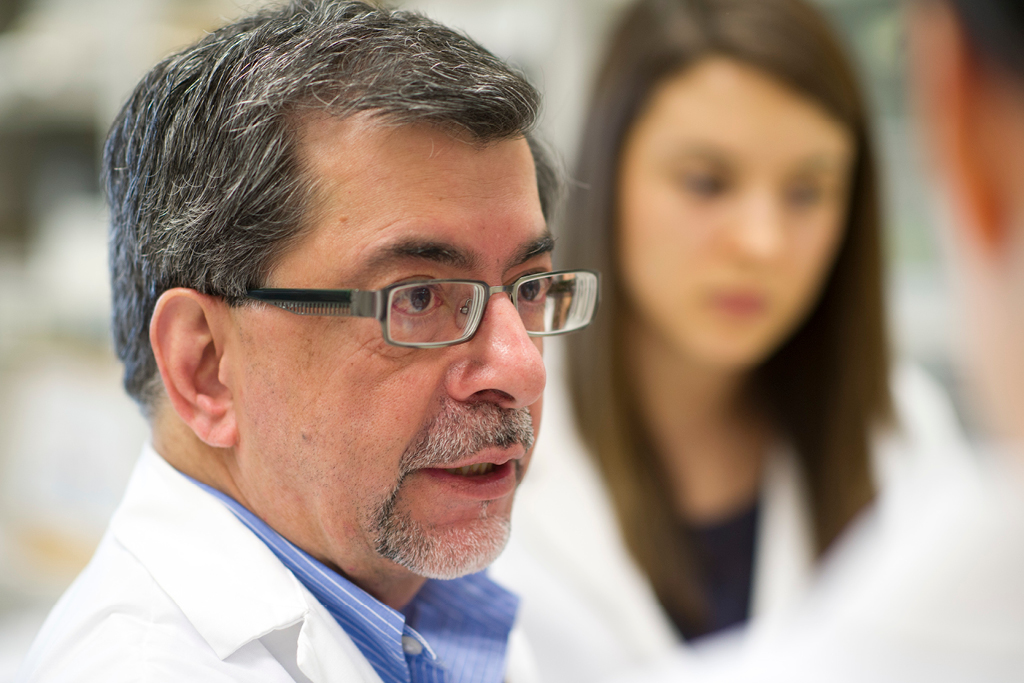Turning Alzheimer’s disease into a mere memory
A transformative $4 million matching gift sparks hope for a promising Alzheimer’s treatment
by TOM NDEKEZI
Dr. Jack Jhamandas and his team are developing small molecule drugs to treat Alzheimer’s
Imagine a world without Alzheimer’s disease. Philanthropist Don Hunter does that several times every day. His wife of 62 years, Sophie, doesn’t recognize him anymore. Nor does she know their children or grandchildren. When she’s not sleeping, she needs constant care.
“Alzheimer’s disease is an epidemic,” says Hunter. “It’s so bad, you wish you had it yourself instead of a loved one.”
Today, over 46,000 Albertans live with some form of dementia. The majority of these cases are Alzheimer’s disease. That number is expected to grow to over 200,000 by 2040 due to the province’s rapidly aging and growing population. The real-life impacts of the disease reach even further.
“One has to look at [dementia] through a very different lens than you might look at something like heart disease, stroke or cancer,” says Dr. Jack Jhamandas, Distinguished University Professor at the University of Alberta, who has been researching dementia, and more specifically Alzheimer’s, for over 25 years. “This is not a condition that plays out in emergency rooms and in acute care medical settings; it’s played out in homes, living rooms, bedrooms and dens.”
Alzheimer’s current impact and looming prevalence is why there is so much excitement about a new drug candidate to come out of Jhamandas’s laboratory. Working with fellow University of Alberta colleagues Dr. Lorne Tyrrell, founding director of the Li Ka Shing Institute of Virology, and Nobel laureate Sir Michael Houghton, director of Li Ka Shing Applied Virology Institute, Jhamandas and his team have developed small molecule drugs that appear to block the effects of amyloid beta. This peptide accumulates in the brains of people with Alzheimer’s disease and results in memory and cognitive deficits. Experimental studies of mice with Alzheimer’s have shown significant improvements in memory and learning after receiving the drugs for just a few weeks, as well as reducing amyloid plaques and inflammation in the brain.
Preparations are being made for further studies leading up to Phase 1 human clinical trials, which will require regulatory approval. The process is expected to cost over $10 million, but thanks to a commitment from Hunter to match donations up to $4 million, the University Hospital Foundation is already on its way to reaching its fundraising target. At a recent event recognizing his gift, Hunter reflected on his wife and her Alzheimer’s diagnosis.
“[Sophie] golfed for 50 years and she curled for 50 years — in fact, there’s still a nice set of rocks at the local curling club with her name on them. So, it doesn’t matter how healthy you are or how well you eat, you can still end up with a terminal disease.”
Speaking of his belief in Jhamandas and his team, Hunter’s support was unequivocal.
“They took me on a tour and showed me what they had been working on, and what I noticed was how enthusiastic they were, how smart they were, how hard they worked at it, how humble they were, how common sense they were,” Hunter said. “These guys are onto something and I think it’s up to all of us to help.”
University Hospital Foundation President and CEO Dr. Jodi Abbott also spoke at the event about the transformative potential for Hunter’s matching gift, as well as the crucial role of the community in making it a reality.
“It’s still too early to say that a cure is around the corner, but by matching Don’s gift, community support will advance their research to the stage of human clinical trials,” said Abbott. “In other words, we can now see where the corner is and what must happen to get there. And, when completed, the world may have the treatment to reverse Alzheimer’s disease that we have all been looking for.”
Sophie Hunter sadly passed away in June 2024. The team at University Hospital Foundation offers their condolences to Sophie’s family and friends.
Change Lives Today
Your support of the University Hospital Foundation is changing lives today and tomorrow, supporting a future in which you and your loved ones live longer, healthier lives.
Donate NowShare this article
Facebook
Twitter
LinkedIn

